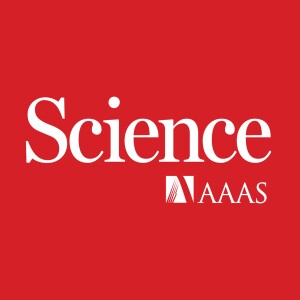
Cicada citizen science, and expanding the genetic code
 2021-06-03
2021-06-03
First this week, freelance journalist Ian Graber-Stiehl discusses what might be the oldest community science project—observing the emergence of periodical cicadas. He also notes the shifts in how amateur scientists have gone from contributing observations to helping scientists make predictions about the insects’ schedules.
Next, Jason Chin, program leader at the Medical Research Council’s Laboratory of Molecular Biology, discusses how reducing redundancy in the genetic code opens up space for encoding unusual amino acids. His group shows that eliminating certain codes from the genome makes bacteria that are resistant to viruses and that these edited codes can be used to program the cells to make complicated molecules.
In a sponsored segment from the Science/AAAS Custom Publishing Office, Science Editor-in-Chief Holden Thorp talks with Gary Michelson, founder of the Michelson Medical Research Foundation and co-chair of Michelson Philanthropies, about the best ways to support early-career scientists, including through prizes such as the new Michelson Philanthropies and Science Prize for Immunology.
This week’s episode was produced with help from Podigy.
Listen to previous podcasts
About the Science Podcast
Download a transcript (PDF)
[Image: Bill Douthitt/Science; Music: Jeffrey Cook]
Authors: Sarah Crespi; Ian Graber-Stiehl
Learn more about your ad choices. Visit megaphone.fm/adchoices
More Episodes
Create your
podcast in
minutes
- Full-featured podcast site
- Unlimited storage and bandwidth
- Comprehensive podcast stats
- Distribute to Apple Podcasts, Spotify, and more
- Make money with your podcast
It is Free
- Privacy Policy
- Cookie Policy
- Terms of Use
- Consent Preferences
- Copyright © 2015-2024 Podbean.com






